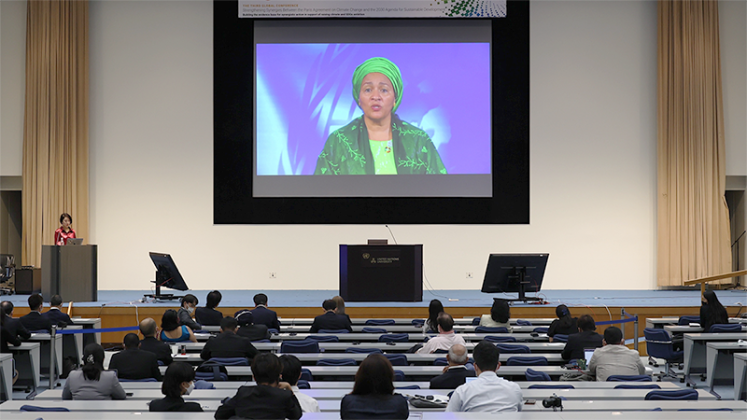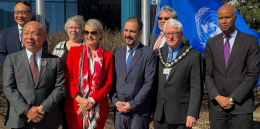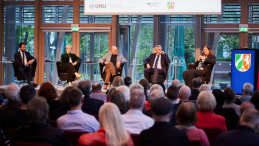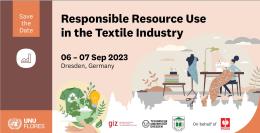On 20–21 July 2022 over 2,000 leaders and experts gathered at UNU headquarters in Tokyo and online to discuss synergies between action on climate change and sustainable development. Delegates shared insights, best practices, and win-win solutions from across the globe, identifying approaches to align and coordinate action on these interconnected global priorities.
The Third Global Conference on Strengthening Synergies between the Paris Agreement on Climate Change and the 2030 Agenda for Sustainable Development was co-convened by the United Nations Department of Economic and Social Affairs (UNDESA) and the Secretariat of the United Nations Framework Convention on Climate Change (UNFCCC) and hosted by the Ministry of the Environment of Japan, in partnership with UNU and the Institute for Global Environmental Strategies (IGES).
Sawako Shirahase (Senior Vice-Rector, UNU) delivered opening remarks, underlining the urgent need to identify and implement solutions that maximise synergies and minimise trade-offs. A High-level Segment featured Ministers, heads of UN organisations and agencies, business leaders, scientists, and youth representatives, who called for greater ambition on the SDGs and addressing climate change. The need to urgently ramp up joint implementation and address gaps such as financing and capacity building was emphasised.
Parallel sessions addressed specific topics including partnerships for synergistic action; overcoming barriers through financing, technology and innovation; harnessing synergies while closing the ambition gap; and measurement, reporting, and verification. UNU-IAS led one of these sessions, focused on just transition, empowerment, knowledge and skills, which underlined the responsibility to ensure that solutions left no one behind. It recognised that the social dimensions of the SDGs were vital enablers for climate action, yet they remained neglected in national climate plans. Participants highlighted the need to place equity and justice at the forefront of all decisions, ensure inclusion throughout the policymaking process, and avoid short-termism.
UNU-IAS also organised side events focused on ecosystem restoration as a nature-based solution, and the role of multi-stakeholder partnerships to accelerate local action.
A multi-stakeholder session and scene-setting discussion on the first day brought together diverse voices to share experiences and lessons learned. The Ministry of Environment of Japan introduced its initiative to recognise Decarbonisation Leading Areas of the country, with speeches from representatives of two of the 26 areas selected in the first round.
In the final session Shen Xiaomeng (Vice-Rector, UNU; Director, UNU Institute for Environment and Human Security) provided closing remarks, highlighting the diverse solutions discussed during the conference.
A detailed summary of the conference will be available on the UN DESA website. Highlights, videos, and photos of the proceedings are available on the IISD Earth Negotiations Bulletin.
Background
This conference builds on two previous synergy conferences. The first Global Conference on Strengthening Synergies between the Paris Agreement and the 2030 Agenda took place in April 2019 in Copenhagen. The second conference was organised as a virtual Global Synergies Consultation during May–June 2020, consisting of three separate online events.





